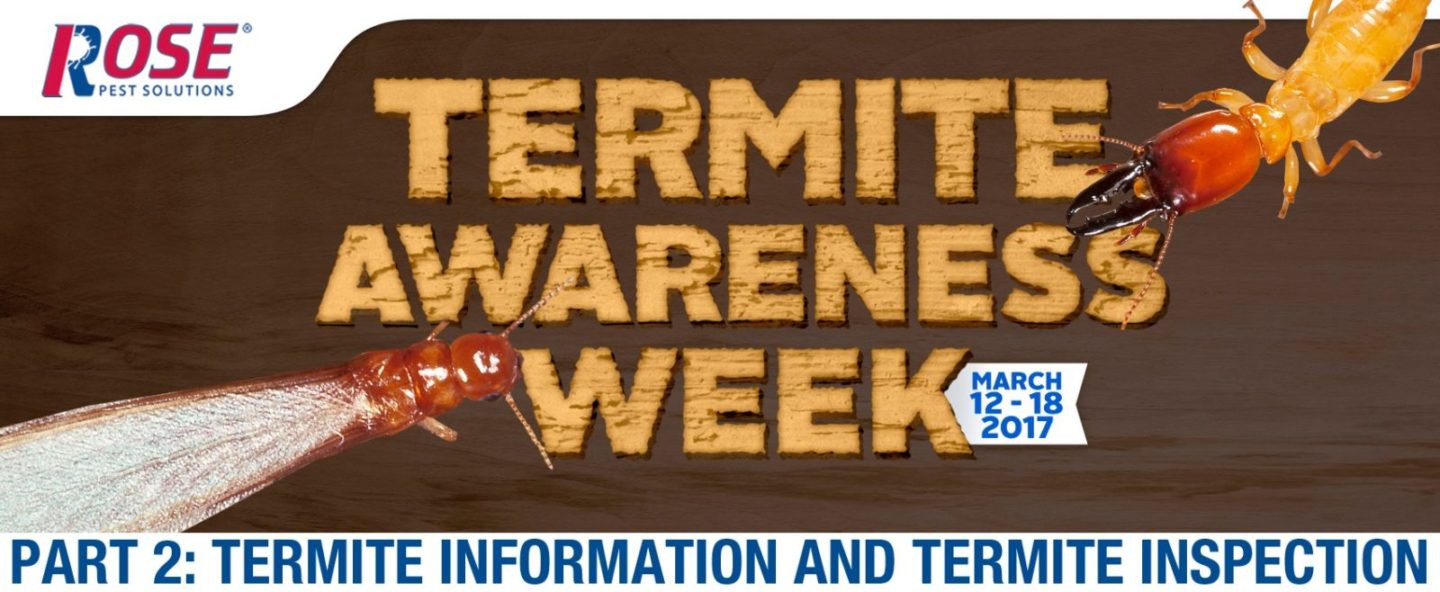Termite Awareness Week continues, and this time around we’re talking about termite information and termite inspection. If you missed it earlier this week, we highly recommend checking out the earlier Welcome to Termite Awareness Week post before getting into this one.
As you know by now, Termite Awareness Week is promoted by our friend’s at the National Pest Management Association (NPMA), so we’re going to start with some termite facts from them and the Professional Pest Management Alliance (PPMA).
TERMITE FACTS
- Termites are wood-destroying insects whose presence dates back to the dinosaurs.
- Termites are known as “silent destroyers” because of their ability to chew through wood, flooring and even wallpaper undetected.
- There are about 2,000 known species of termites in the world.
- The most common termite species found in the United States are subterranean termites, Formosan termites, dampwood termites, drywood termites.
- Subterranean termites are by far the most destructive species of termite as they eat 24 hours a day, seven days a week.
- Each year, termites cause more than $5 billion in property damage.
- Termite colonies can have upwards of 2 million members.
- Termites are present in 70 percent of countries across the world and their population outnumbers human beings on a ratio of ten to one.
- The queen termite can lay up to 40,000 eggs per day.
We know statistics like that can be a little daunting, if not terrifying, but they do serve to prove the point that termites are gluttonous little buggers capable of literally eating you out of house and home without you even realizing it. Don’t just take our word for it, though. Here’s the chief entomologist from the NPMA, Dr. Jim Fredericks, talking about termite damage in an Ask the Pest Professor segment.
Extensive potential damage?
Check.
Eats everything with cellulose including wallpaper and books?
Check.
Repairs typically not covered by homeowner’s insurance?
Check.
If you don’t want to deal with any of these things–who would?–you need to start with a termite inspection from a qualified pest professional like one of our associates at Rose.


